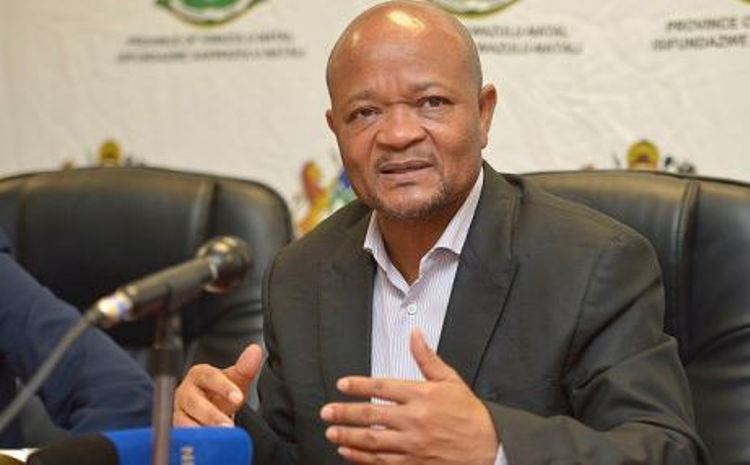Minister Mchunu Confronts Historical Distortion of Farm Murder Narratives
Mchunu’s presentation marked a decisive effort to correct distorted narratives and to present a balanced and fact-based view of rural crime and land reform in South Africa.

- Country:
- South Africa
Police Minister Senzo Mchunu has spoken out against what he characterizes as a persistent and harmful misrepresentation of the realities surrounding farm murders in South Africa. During a press briefing on the fourth quarter crime statistics for the financial year ending 31 March 2025, Mchunu asserted that Black South Africans, and particularly African people, have historically comprised the majority of victims in these attacks—contrary to popular and international narratives that emphasize White victimhood.
“The history of farm murders in the country has always been distorted and reported in an unbalanced way,” Mchunu stated during the presentation in Pretoria. “The truth is that farm murders have always included African people in more numbers.”
Fourth Quarter Statistics Reveal Drop in Farm Attacks
The report covering the period from 1 January to 31 March 2025 revealed a significant reduction in farm-related crimes. Farm attacks decreased by 50%, with six incidents reported compared to 12 in the third quarter. Among the victims were two farm owners, two farm employees, one farm manager, and one farm dweller.
Of these victims, five were Black South Africans. “The two farm owners that were murdered during the fourth quarter were African and not White,” Mchunu clarified. “Further to that, the two farm employees and one farm manager were also African – it is the one farm dweller that was White.”
The minister’s comments were in direct response to recent narratives perpetuating the idea of a "White genocide" in South Africa, a claim often echoed in international right-wing circles. Mchunu refuted these assertions, emphasizing the importance of accuracy and balance in reporting.
Progress in Investigations and Commitment to Justice
According to the minister, investigations into these crimes are ongoing, with several arrests already made. He assured the public that the South African Police Service (SAPS) continues to treat all crimes with urgency and impartiality, regardless of the victims’ racial or socio-economic background.
“We are resolute in conducting thorough investigations and ensuring justice is served in every case,” Mchunu said, reinforcing the SAPS’s impartial stance.
Expanding the Scope of Crime Statistics
In a move towards more comprehensive crime data reporting, Mchunu announced upcoming changes in the way crime statistics will be presented. Beginning with the first quarter report for the new financial year, the SAPS will include broader categories such as killings in both rural and urban areas.
“Currently, our statistics are based solely on commercial farms. However, moving forward, we want to offer a more complete picture of crime across various environments,” Mchunu explained.
Government's Commitment to Rural Safety
The minister reaffirmed the government’s dedication to the National Rural Safety Strategy, aimed at fostering safer rural communities through increased policing and community engagement.
“We have consistently reported to the Parliamentary Portfolio Committee on our efforts,” he noted. “The National Rural Safety Strategy remains a critical tool in our mission to secure rural South Africa.”
Clarifying the Truth Behind “Land Grabbing” Allegations
In addition to crime statistics, Mchunu used the platform to address growing misconceptions around land reform and the inflammatory rhetoric around “land grabbing.”
He emphasized that land invasions, though occurring sporadically, do not reflect any formal government policy. Rather, they are a result of “acts of desperation by African people who find themselves landless and in need to settle.”
“Land invasions remain unlawful, and all incidents are subject to legal action and investigation,” he added.
Mchunu stressed that the government’s approach to land redistribution is lawful, systematic, and in accordance with constitutional principles, notably through the policy of expropriation without compensation.
He also referenced an upcoming briefing by Minister of Land Reform and Rural Development, Mzwanele Nyhontso, who is expected to further clarify the government’s position on land reform and misuse of the term "land grab."
Moving Toward Transparency and Justice
Mchunu’s presentation marked a decisive effort to correct distorted narratives and to present a balanced and fact-based view of rural crime and land reform in South Africa. By confronting racialized myths and committing to transparency, the government aims to foster national unity and build trust in its policies and law enforcement efforts.










